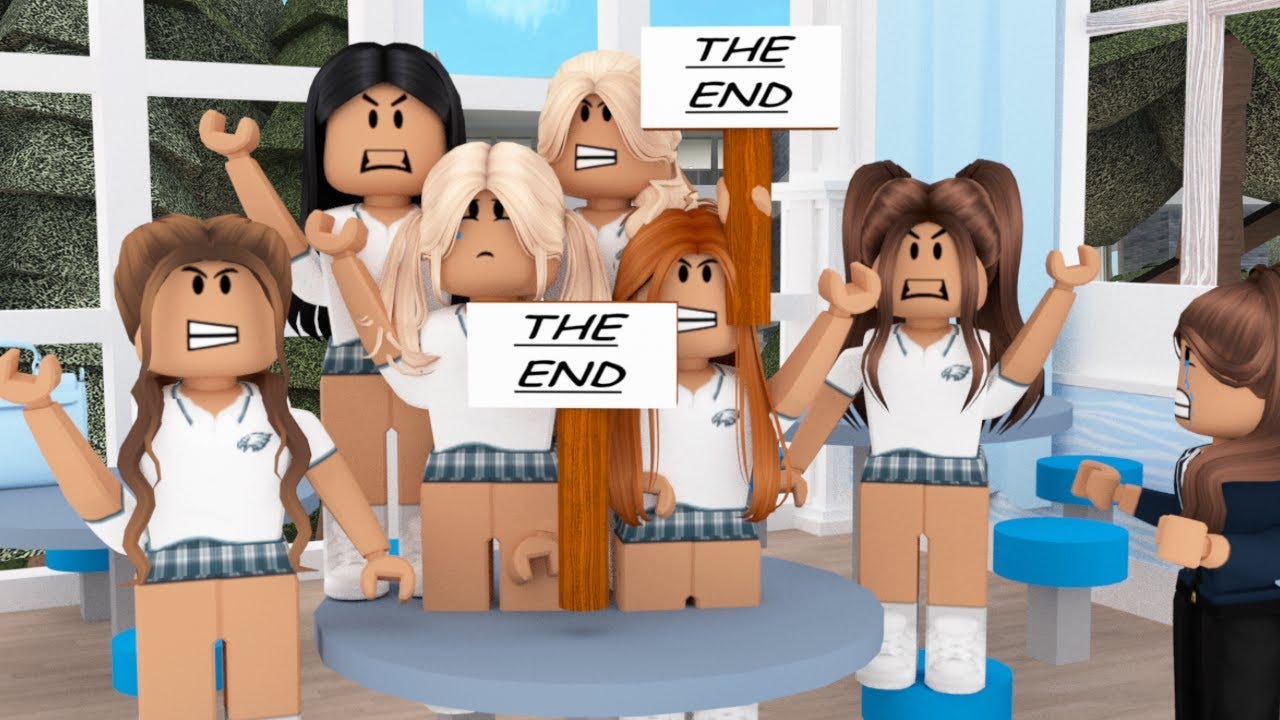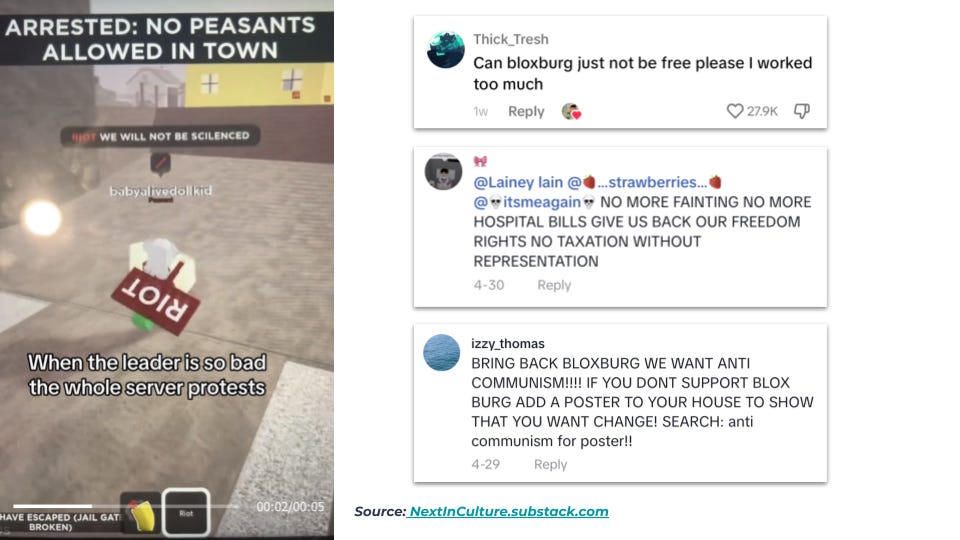Roblox protests in Bloxburg: the kids are playing representation, democracy and classism
Not your doll house games
Tweens are protesting in Roblox. In the popular Bloxburg game, protests are taking place against encroaching “communism.” Residents of Bloxburg are unhappy with their new regime.
Tweens have always played at being grownups. Between the ages of five and 12, much of children’s play is devoted to role-playing adults, both real and imaginary. They drive cars, go shopping, care for the sick, teach, score winning touchdowns, and wage wars.
Games that allow children to do adult things online—to "play house"—are very popular. Roblox is just a contemporary expression of a timeless activity, a new product meeting an eternal need. The platform has more than 300 million monthly users and is dominated by teens and tweens. Half of all American children say they play Roblox regularly. (60% of users are under the age of 16, with 48% under 12.) So how did a game for dressing up and playing mommy-and-daddy become a hotbed of protest?
Why are they mirroring real life? The whole point of this game is to escape real-life
Bloxburg is a place where kids can build their own houses and socialize with other players while earning and spending Robux. Players do one of 12 jobs, such as delivering pizza or working at the grocery store. It is, in short, a society simulator.
When a recent update imposed big government on them and suppressed their wages, the good citizens of Bloxburg took to the streets. They erected a stage in the town square and began protesting. They recited stirring speeches from revolutionary movies like The Hunger Games and chanted timeless political slogans, including that old favorite, “No taxation without representation.” Some protestors fainted under the pressure of it all.
It eventually came down to a standard labor dispute about pay differentials and seniority. Long-term players felt cheated out of their hard work in the past and branded the gamerunners "communists." The protestors declared themselves "anti-communists."
One protestor said: Those who have been playing the game for a long time feel betrayed: i invested so much into the game, why: a lot of people feel tied to the game because they put so much work into their progress.
Real Protest, Imaginary World
The protests in Bloxburg are more than an expression of discontent. They are enactments of a common ideology.
Protests may be processed differently. They feel real. They feel as real as the Robux, the universal currency of the platform at the heart of the dispute. And they reach through the fourth wall, breaking the illusion of separation between the players and the game itself. The real world is dragged into the game in unforeseen ways.
Protest movements gain traction across the virtual world
It was not the first protest, and it’s not just in Roblox where civil discontent is brewing. There is a rapidly growing number of protests virtually worldwide.
There's a current wave of pro-Palestinian protests. During lockdown in 2020, BLM demonstrations took place in Toontown, Habbo and Roblox. What sets the Bloxburg protests apart is that the protests are against the game's own government, hence “no taxation without representation.”
It's a revolution, a demand for democracy, and raises questions of who should be in charge.
What can we learn from an angry mob of 12-year-olds?
The answer to who should be in charge might be a long time coming.
One observer on Reddit asked if players “want segregation from people who pay vs those who don't and people end up making it racist?” There is a feeling, as there is in many communities, that those who have been there longest have more rights than new arrivals, outsiders or immigrants. Doesn’t it feel extremely similar to the current discourse we see on TV for grown-ups?
What does it all mean?
It is too early to know how the context of this uprising will define the next generation, the post-Gen Z generation, but we can already see some signals.
In the worldbuilding game of Roblox, 12-year-olds are learning by playing the 101s of social structures, systems of oppression, and democratic struggles. Michel Foucault was 40 when he published The Order of Things, one of the first books that decoded exactly this.
While I am not suggesting that all of the currently protesting Gen Alphas are going to become next-generation geniuses of social philosophy, they are already confronting complex ideas about how the world works or should work. This means the question becomes what 50% of American kids who play this game now will do with this knowledge once they grow up. Time will tell.






